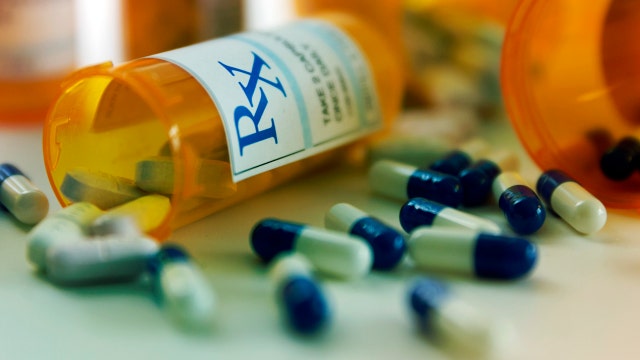Opioid misuse often starts at the dentist’s office
According to a JAMA study deaths from opioid overdose have quadrupled from 1999 to 2010. Many of those cases are teens. The American Dental Association recently reported that misuse often begins in the dentist’s chair
From 1999 to 2010, fatalities from opioid overdose have quadrupled with many of these cases involving teens, according to a JAMA study. Believe it or not, misuse of opioids often begins in the dentist’s office.
The American Dental Association recently reported dentistry is responsible for prescribing 12 percent of all instant-release opioids. Dr. Mojgam Fajiram, DDS, of Sutton Advanced Cosmetic Dentistry talked to Fox News’ Dr. Manny Alvarez about the problem.
“Our industry gives out opioids way too quickly, just to treat chronic pain,” Fajiram told Fox News, adding that, since people don’t like seeing the dentist, it’s easier for them to write an opioid prescription when a patient has pain and to say, “Don’t call me, just come see me in seven days and everything will be better.”
With dental procedures, patients don’t actually need opioids, Fajiram said. In fact, taking a combination of acetaminophen and ibuprofen will decrease the inflammation without the adverse effects of vomiting, headache and nausea— and abuse.
“There’s really no need for [narcotics] if you have a root canal, unless you’re really inflamed,” she said.
Fajiram has noticed many patients, especially younger ones, coming to the office specifically asking for the prescription painkiller they want.
“My answer to them is, ‘No.’ If you really have a lot of pain, you take Advil, you just mix it with Tylenol and you should be fine,” she said.
Other alternatives to powerful painkillers include icing the affected area for 20 minutes on and 20 minutes off to decrease inflammation, using a mouthguard or injecting Botox to control jaw joint pain, and trying acupuncture.
“Even for gum surgery, even for extraction, unless it’s impacted, you just don’t need to take any opioid,” Fajiram said.
Unfortunately, there isn’t much conversation in the dental community around the opioid epidemic, Fajiram noted. The Drug Enforcement Administration requires dentists to e-Prescribe drugs electronically, rather than by a traditional written order, which adds regulation so a patient can’t get a powerful painkiller from his oral surgeon, then go to his dentist to ask for the same drug.
“We get alerted, the pharmacy gets alerted, so that helps a little bit to regulate it,” she said.
Fajiram noted that patients who have children should be extra careful with opioid prescriptions, as the drugs are likely to get into the medicine cabinet.









































